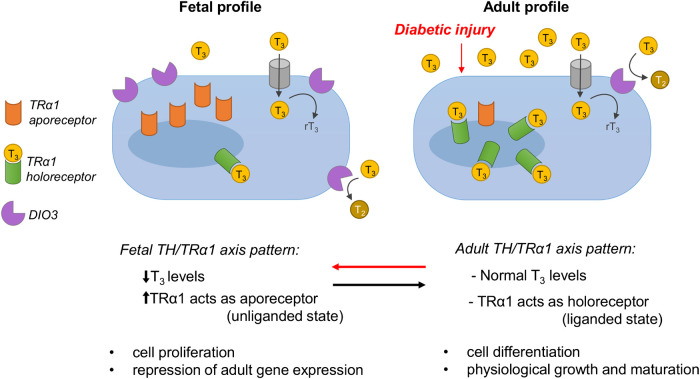FIGURE 4.
In the fetus, when the levels of the active form of TH L-triiodothyronine (T3) are low, TRα1 mainly acts as an apo-receptor (unliganded state) to repress adult genes (thus protecting the embryo from premature differentiation) and enhances cell proliferation and organ growth. In contrast, after birth when T3 levels increase, TRα1 switches to the holo-receptor (liganded state) to induce the expression of adult genes, thus promoting cell differentiation, physiological organ maturation and function. In adult life, local T3 availability is controlled by the T3-inactivating enzyme DIO3, which converts excessive T3 into rT3 and T2. In response to diabetic injury, systemic T3 levels drop markedly, and TRα1 and DIO3 are overexpressed locally, resulting in the coordinated adoption of the fetal ligand/receptor relationship profile (i.e., low T3 availability/high local TRα1). Apo-TRα1 binds DNA and represses the transcription of target adult genes (as happens in the fetus), leading to cell dedifferentiation, metabolic and structural remodeling, and cell cycle reactivation. The figure is modified from Benedetti et al., 2019.

